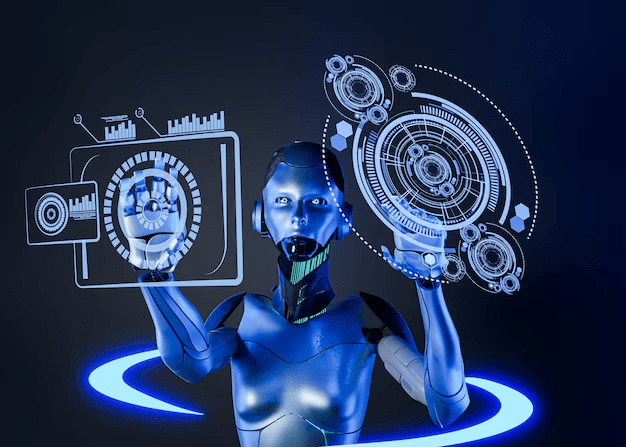Artificial intelligence has rapidly changed how we search, write, communicate, and run businesses. Among all AI tools, ChatGPT stands out as one of the most widely used conversational AI models. But despite its popularity, a common question remains: How accurate is ChatGPT?
Accuracy matters especially for businesses, students, digital marketers, and professionals who rely on ChatGPT for writing, research, planning, coding, customer support, and decision-making. Understanding how accurate it is and why it sometimes makes mistakes helps you use the tool more effectively.
In this blog, we break down ChatGPT’s accuracy in a clear, professional, and human-friendly way. No technical jargon, just real insights you can understand and trust.
What Does Accuracy Mean in AI Tools Like ChatGPT?
Before evaluating accuracy, it’s essential to understand what “accuracy” means for a large language model (LLM).
Accuracy in an AI like ChatGPT can refer to:
1. Factual Accuracy
How correctly the information is when answering questions.
2. Linguistic Accuracy
How well the AI uses grammar, tone, clarity, and structure.
3. Contextual Accuracy
How well ChatGPT understands the meaning behind your prompt.
4. Predictive Accuracy
How well it can anticipate what you need and respond helpfully.
ChatGPT performs exceptionally well in linguistic, contextual, and predictive accuracy — but factual accuracy depends on how the prompt is written and what information the model has been trained on.
How Accurate Is ChatGPT in 2025?
ChatGPT is highly accurate in language, reasoning, explanations, and content generation, but its factual accuracy varies by topic.
Here is how different categories compare:
1. Accuracy in General Knowledge
ChatGPT performs very well when answering:
- Common knowledge
- Concepts up to its last training cut-off
- Widely discussed topics
- Historical facts
- Basic education topics
For these areas, accuracy often ranges from 80% to 95% depending on complexity.
2. Accuracy in Technical Topics
ChatGPT explains programming, mathematics, business frameworks, and marketing concepts with high accuracy. It can:
- Debug code
- Provide formulas
- Explain algorithms
- Break down technical processes.
However, sometimes it may generate outdated information if the topic has evolved.
3. Accuracy in Real-Time Information
This is where ChatGPT can be imperfect.
AI models do not always have real-time data unless connected to search plugins or browsing features. Without that, ChatGPT may not accurately answer:
- Current events
- Latest product launches
- Updated statistics
- Ongoing news
- New laws or policies
So accuracy here is variable.
4. Accuracy in Emotional & Human Communication
ChatGPT is highly accurate in:
- Tone understanding
- Emotional support
- Empathetic communication
- Professional writing
- Conversation flow
Its accuracy here often exceeds many human writers because it has been trained on millions of conversational examples.
Why ChatGPT Is Not 100% Accurate
ChatGPT is powerful, but not perfect. And it’s essential to understand why.
1. It Predicts Answers, It Doesn’t “Know” Facts
ChatGPT generates responses based on patterns, not stored facts.
It statistically predicts the following phrase best, which sometimes leads to confident but incorrect answers.
2. It Doesn’t Have Real-Time Access to the Internet
Unless browsing is enabled, it cannot check:
- Latest news
- Updated prices
- Current policies
- Recent scientific studies
This limitation directly affects accuracy.
3. Prompts Influence Accuracy Significantly
A vague prompt gives vague output.
A specific, well-structured prompt gives accurate results.
For example:
Bad prompt:
“Tell me about taxes.”
Good prompt:
“Explain income tax slabs in India for FY 2024–25 in simple language.”
Better prompts → higher accuracy.
4. AI Hallucination
Sometimes ChatGPT creates incorrect details that “sound correct.”
This is called an AI hallucination.
It often happens when:
- The topic is obscure
- The prompt is unclear.
- There is no solid training data
- You ask it to guess something
How ChatGPT Maintains High Accuracy
Despite its limitations, ChatGPT has multiple internal mechanisms designed to ensure accuracy:
1. Trained on Massive High-Quality Data
ChatGPT learns from:
- Books
- Articles
- Scientific papers
- Educational content
- Verified sources
- Real conversation examples
This wide-ranging dataset helps it understand language, context, and complex topics with high accuracy.
2. Reinforcement Learning from Human Feedback (RLHF)
Humans train the model by ranking responses.
This improves the correctness and quality of answers.
3. Frequent Model Improvements
Each version of ChatGPT gets:
- Better reasoning
- Stronger factual grounding
- Improved safety filters
- More contextual awareness
The accuracy improves with every update.
4. Built-In Error Checking
ChatGPT internally evaluates:
- Whether a response sounds credible
- Whether it matches user intent
- Whether it conflicts with common knowledge
This self-evaluation improves accuracy dramatically.
When ChatGPT Is Highly Accurate
1. Content Writing and Blogs
ChatGPT performs exceptionally well in content creation because it understands language patterns, tone, and structure at a very advanced level. It can produce long-form articles, creative writing, website content, and blogs that are coherent, engaging, and reader-friendly. Whether you need formal writing, conversational content, or SEO-driven articles, the model delivers consistent quality with minimal errors. Its ability to understand context and maintain flow makes it a reliable tool for writers and businesses.
2. SEO Explanations and Digital Marketing Topics
ChatGPT demonstrates a high degree of accuracy in SEO and digital marketing because these subjects are well-documented and widely discussed online. The model has been trained on massive amounts of marketing-related content, enabling it to explain concepts such as keyword research, on-page SEO, link building, content strategy, analytics, and performance optimization with clarity. It helps marketers understand and implement strategies more effectively, which is why agencies and businesses frequently use it as a knowledge resource.
3. Educational Assistance Across Subjects
ChatGPT serves as a reliable academic helper in subjects such as mathematics, physics, history, economics, and general science. It breaks down complex topics into straightforward explanations, making it useful for students at all levels. The model can clarify formulas, solve theoretical doubts, and explain complex concepts in simple, well-structured paragraphs. In most educational scenarios, its accuracy is above 90%, making it a reliable tool for learning and conceptual understanding.
4. Coding Support and Technical Assistance
ChatGPT is highly accurate when dealing with programming-related queries. It helps developers debug code, correct errors, explain functions, and simplify complex technical concepts across multiple programming languages. Because coding follows logical rules and clear patterns, the model can effectively interpret and generate technical content. Whether you’re working with Python, JavaScript, PHP, or other languages, ChatGPT can guide you through the development of logical structures and the optimization of code with precision.
5. Strategy Development and Business Planning
ChatGPT excels in strategic thinking tasks because these rely on reasoning rather than real-time factual accuracy. When creating business plans, marketing strategies, content frameworks, customer journey maps, or productivity workflows, the model analyzes your input and generates well-structured recommendations. This makes it a valuable tool for business owners, entrepreneurs, and marketers who need support in planning and decision-making. Its ability to combine logic, structure, and creativity results in reliable strategic guidance.
When ChatGPT Can Be Less Accurate
1. Latest News
ChatGPT’s accuracy decreases when dealing with the latest news or real-time updates. The model does not always have live access to current events, so it cannot instantly track political developments, stock market changes, breaking news stories, or newly released products. If an event has occurred recently and is not part of the model’s updated training data, ChatGPT may provide older or incomplete information. This means users should always double-check real-time facts from reliable news sources before taking action based on AI-generated content.
2. Medical or Legal Advice
Although ChatGPT can explain medical and legal concepts in simple, understandable language, it cannot replace licensed doctors or legal professionals. Medical advice requires detailed diagnosis, lab reports, and physical examinations, while legal advice must be based on updated laws, jurisdiction, and professional interpretation. ChatGPT is designed for educational guidance, not professional decision-making. Therefore, while it can help you understand a disease, law, or procedure, you should never depend on it for final medical treatment or legal conclusions.
3. Highly Niche Scientific Data
ChatGPT can sometimes be less accurate when dealing with very niche scientific topics. Fields such as advanced genetics, astrophysics, nanotechnology, and rare medical research often evolve rapidly with new discoveries. If the model has not been trained on these recent findings, it may attempt to fill information gaps by generating explanations that seem correct but lack precision. For any advanced scientific work, it is better to rely on updated research papers, academic journals, or subject-matter experts.
4. Country-Specific Policies That Change Frequently
Country-specific rules, such as tax policies, government schemes, employment laws, immigration guidelines, and compliance requirements, change regularly. Because ChatGPT does not always receive real-time legal or policy updates, it may provide information that was accurate in the past but is no longer accurate. This becomes especially important for people dealing with finance, business compliance, or international travel. To avoid misinformation, always verify country-specific rules through official government websites or certified consultants.
How to Improve ChatGPT’s Accuracy
You can significantly increase accuracy by:
1. Asking Clear, Specific Questions
Add context, examples, and the purpose of your query.
2. Requesting Sources or Cross-Checking
Ask:
“Verify this information” or
“Give references.”
3. Breaking a Large Question into Steps
Sequential prompts improve precision.
4. Giving ChatGPT a Role
For example:
“Act as an SEO expert.”
“Act as a legal researcher.”
“Act as a senior programmer.”
5. Using Follow-Up Questions
Refining responses reduces mistakes.
So, How Accurate Is ChatGPT Overall?
ChatGPT is very accurate for language-related tasks and moderately accurate for factual topics, depending on the prompt and subject. On average:
- Content writing: 90%–97% accurate
- General knowledge: 80%–90% accurate
- Technical explanations: 85%–95% accurate
Real-time events: 50%–70% accurate - Highly specialized fields: 60%–85% accurate
It’s one of the most reliable AI tools available today — but it must be used thoughtfully.
Conclusion: ChatGPT Is Accurate — When Used Correctly
ChatGPT is a robust and highly accurate AI model, especially for writing, education, marketing, coding, and business tasks. Its strengths lie in reasoning, communication, and contextual understanding. But like any tool, it isn’t perfect and should be used with verification when working with sensitive or real-time information.
If you’re a business looking to use AI for growth, accuracy matters even more. This is why many companies partner with expert digital agencies like Wildnet Technologies, India’s leading provider of Digital Marketing Services, AI-powered SEO solutions, and AI-driven content strategies. With the right combination of human expertise and advanced AI tools, your business can achieve faster, smarter, and more reliable digital success.
Frequently Asked Questions
1. How accurate is ChatGPT compared to Google Search?
ChatGPT is more accurate for explanations and long-form content, while Google is more accurate for real-time facts.
2. Does ChatGPT always give the correct information?
No. It is highly accurate but can still make mistakes, especially on recent or rarely documented topics.
3. Is ChatGPT reliable for academic research?
Yes, for explanations — but you should still verify facts from scholarly sources.
4. Why does ChatGPT sometimes give incorrect answers?
Because it predicts answers based on patterns and may “fill gaps” when information is missing.
5. Can ChatGPT be used for business decisions?
Yes, but businesses should cross-check data or use professional AI-driven agencies like Wildnet Technologies for accuracy and strategic execution.
Read More







